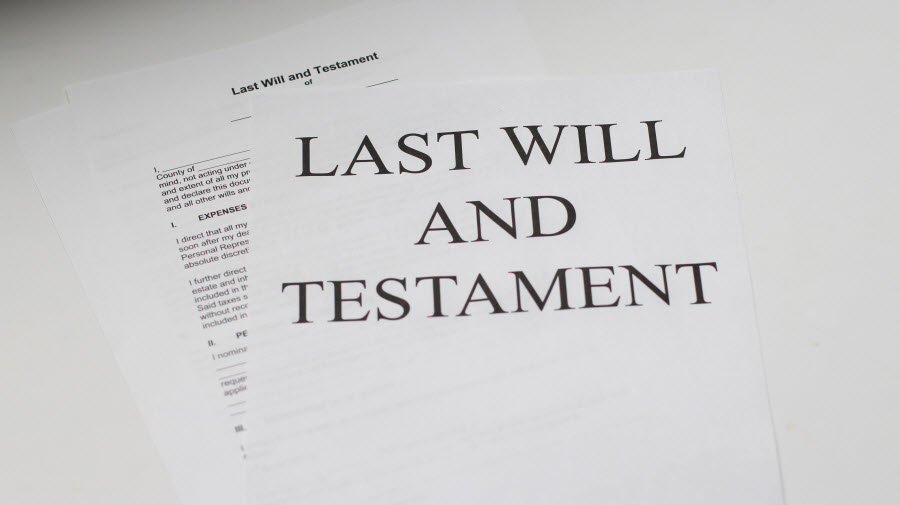
The COVID-19 pandemic has many Americans contemplating their own mortality and planning for the future of their families. More and more people are seeking information about estate planning, including making a will. However, the social distancing guidelines currently in place throughout the United States have dramatically altered the ways in which estate planning attorneys can practice. Things like will-writing and signing, traditionally performed in person, are now essentially halted, as legal professionals attempt to figure out how to transition to virtual lawyering.
There are a number of services and templates available online for people who want to write their wills themselves. We asked Michael Dressler, the County Surrogate for Bergen County, what he thought of these tools; “We’re in a very difficult situation but I really believe it’s still important for people to go and talk to an attorney and have an attorney prepare the documents.” Judge Dressler was generous enough to take the time to discuss some of the issues of these online templates and other points of interest regarding estate planning during coronavirus.
One issue Judge Dressler noted with online will-drafting templates is that they are prepared for general use and do not take specific state laws into account. “Usually things like these forms are not tailored towards New Jersey, and New Jersey has some very specific requirements.” He highlighted the self-proving element in New Jersey as something that these generic forms do not cover or consider. “With the self-proving will, you would sign it, it would still be witnessed by two people, then it would be notarized by a notary public. Once the notary public signs that document and attests to it, it gets proved as a matter of law.” Self-proving was introduced in New Jersey to streamline the process after a person’s death. But as Judge Dressler said, “if you take one of these forms, you may not know that and you may have it witnessed by two people and not notarized. And your estate is going to wind up in Court and it’s going to cost money to prove the will.”
The Judge notes that, “there are a number of things that you as a pro-se person drafting a will may not know,” and specifically mentioned Special Needs Trusts. A Special Needs Trust is also an important factor to consider while drafting a will that someone writing it themselves might not understand. A Special Needs Trust is a trust established for a beneficiary to allow them to maintain eligibility for Medicaid or other assistance. If someone places a substantial gift in their will for someone on government assistance, that gift may make that individual no longer eligible for those necessary benefits. Establishing a Special Needs Trust requires legal expertise that most people do not have and that cannot be encapsulated in a readily available online-form.
The Bergen County Surrogate’s Court, headed by Judge Dressler, must also adjust to this new way of operating. The Court published a “Notice to the Bar” (to attorneys) on April 17 outlining how it would be continue working during the health emergency. The Notice says that our current crisis requires, “innovation and outside of the box thinking such that our former normal must give way to the new norm.”
The Surrogate’s Court will now allow New Jersey representatives to email or fax Last Will and Testaments, along with the necessary documents and identification. Upon receipt, an appointment will be scheduled for a virtual (Zoom.com) qualification of the documents. However, the Notice highlights that the technology must be in place, and must be up to the task, of performing this increase of conferences. These adjustments, like so much in our lives right now, will take time and patience from everyone.
Attorneys discussing will preparation are also finding new ways to work while the world self-isolates. The traditional in-person consultation must be replaced by new methods, such as video conferencing. On April 14th, Governor Murphy signed A3903, a bill allowing, “notarial acts and other acts for executing and verifying certain documents, by notaries public and certain other authorized officials using communication technology for the duration of the Public Health Emergency.” This is good news for people who want to write their wills and have them self-proved during self-isolation – however, the provisions of the bill will expire as soon as the Public Health Emergency status in New Jersey is lifted. The Kates Nussman firm is now well-equipped to do these things.
As soon as the world goes back to normal, so will the way we perform legal functions, including drafting wills. In the meantime, Judge Dressler reminds anyone who wishes to draft their will during coronavirus, “we have no rules – we have to come up with ways to do this creatively, but I still think it’s important that an attorney goes over and does it the right way.”
Rachael Newcomb, who wrote this, is in her 2nd year at Rutgers Law School in Newark, New Jersey.

